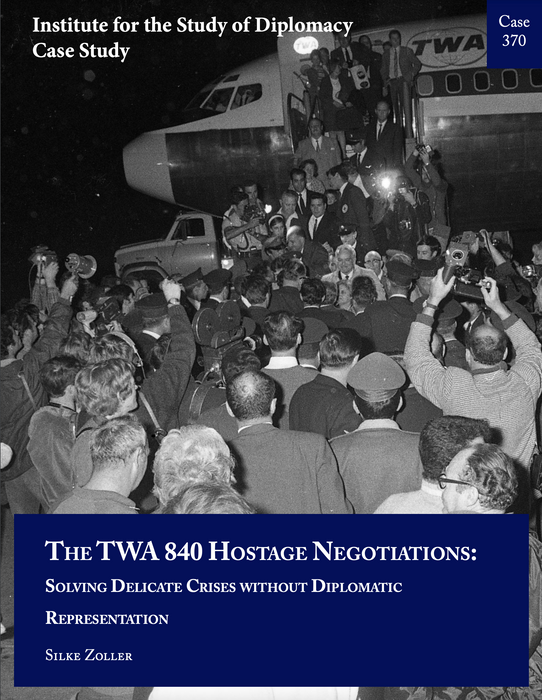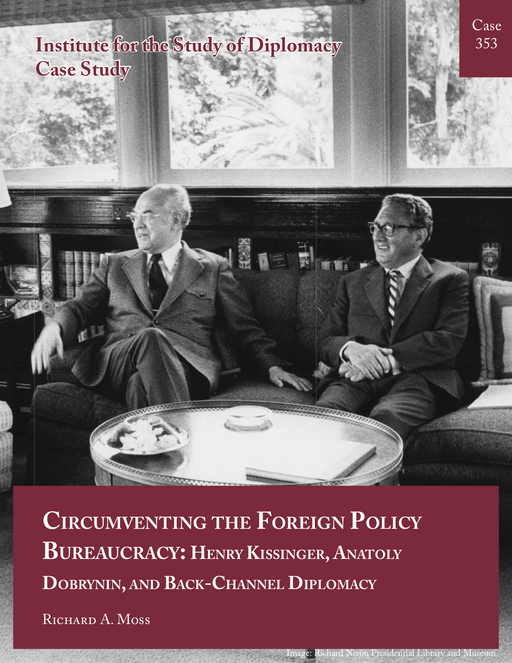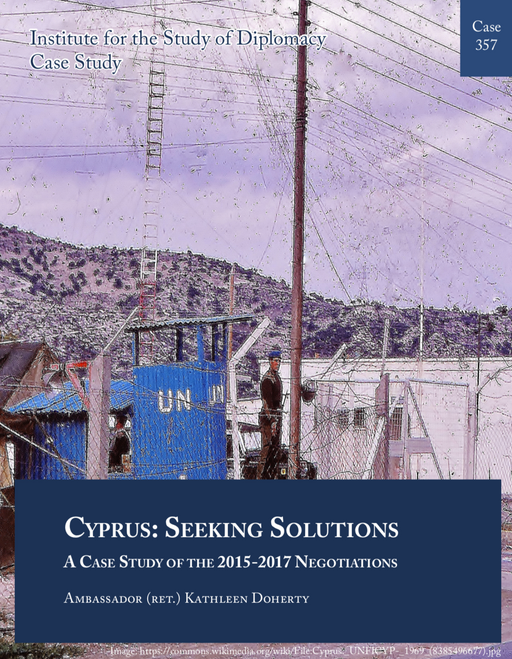Case 370 - The TWA Hostage Negotiations: Solving Delicate Crises Without Diplomatic Representation
Silke Zoller
This case study examines the international negotiations to release two Israeli passengers after the Palestinian hijacking of TWA flight 840 to Damascus, Syria. The hijacking placed the Nixon administration in a complex situation. Though the United States was responsible for the safety of the passengers according to international law and custom, State Department officials had neither the access nor the leverage to compel Syrian authorities to release the Israeli passengers. The case study analyzes the options available to U.S. diplomats in crises where agency is not straightforward or clear-cut.
The case study begins with a short context section about the regional dynamics of the Middle East in August 1969. This section introduces students to various involved states and to the policies and priorities that each held in the wake of the 1967 Six-Day War. An instructor might ask students to analyze how the Israeli, Syrian, and U.S. governments interpreted what had happened, and how these interpretations in turn shaped the solutions each was willing to consider. The case study then covers the hijacking of TWA flight 840 on August 29, 1969, and describes the hijackers and their motivations. Students are introduced to non-state actors, Palestinian extremists, who affect state policies in the region even though they do not have a voice in state-to-state relations.



